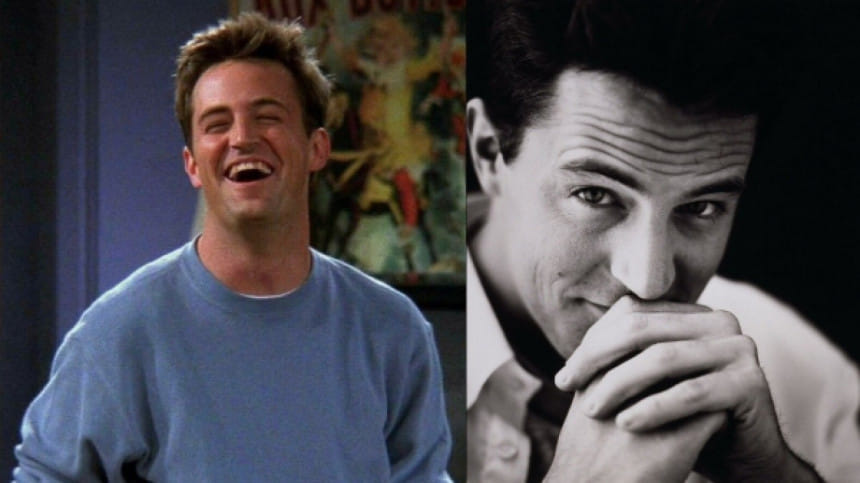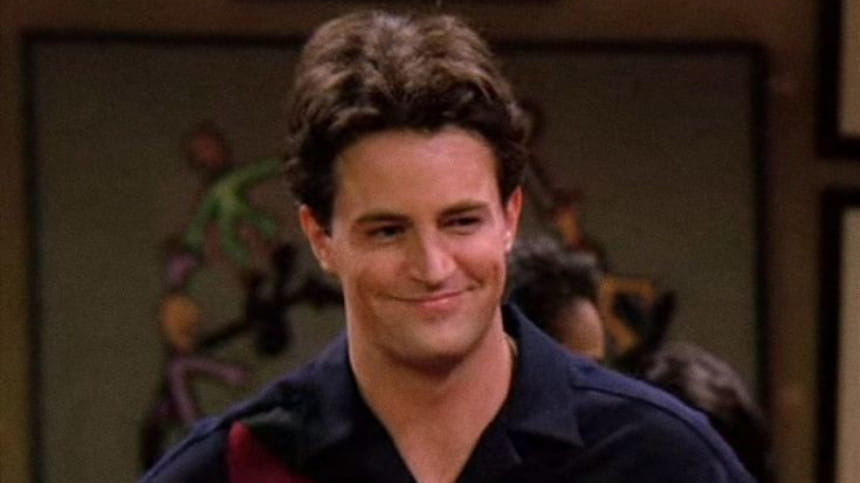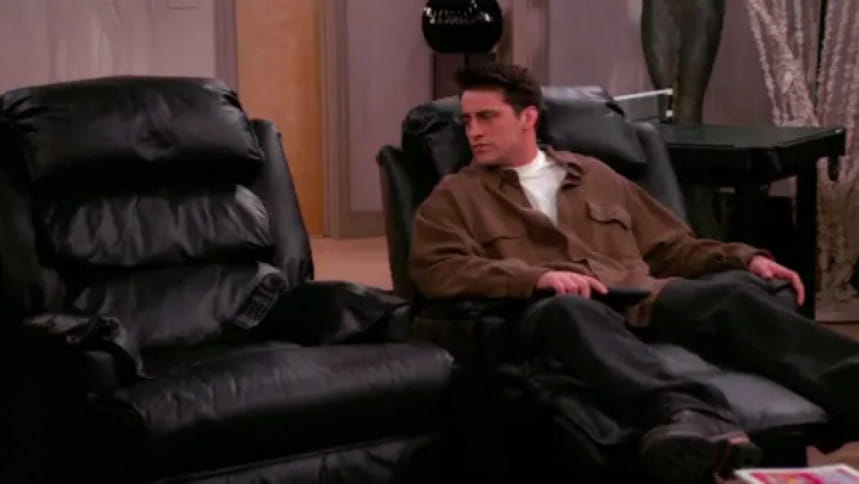The one about feelings: How Chandler Bing taught a generation of men to cope with comedy

One of the hardest parts of growing pains has to be the loss of characters that helped shape us during our formative years. Matthew Perry's Chandler Bing was one of those characters, for a massive number of young people, spanning generations, who grew up watching "Friends". When the news of Perry's passing broke, so did the hearts of millions of millennials and following generations, worldwide.
While the show itself is celebrated for its humour and timeless appeal, on a deeper level, it is Chandler Bing's character that stands out as a shining example of humour, humility and a healthy portrayal of masculinity on screen. In this tribute article, we aim to explore how Matthew Perry and his portrayal of Chandler Bing has positively influenced millennial men.

Matthew Perry, born on August 19, 1969, in Williamstown, Massachusetts, was a highly acclaimed actor and comedian known for his remarkable contributions to the entertainment industry. He rose to international fame for his role as Chandler Bing in the immensely popular television series "Friends", which aired from 1994 to 2004. Perry's performance as Chandler made him a household name and earned him critical acclaim.
Chandler Bing, the witty, sarcastic, and endearingly awkward character, defied the stereotypes of traditional masculinity. In a world where stoicism and emotional detachment were often expected from male characters, Chandler was refreshingly different. His character taught young people everywhere that it is okay to immerse in their introversion, that awkwardness does not increase loser points, au contraire to what 90s high-school films have to say.
He openly expressed his insecurities, displayed vulnerability, and wasn't afraid to make fun of himself. This openness encouraged millennial men to embrace their emotions and communicate their feelings, debunking the notion that 'real' men should always be tough and unfeeling.

"In an era when we were growing up with characters that sometimes embodied toxic masculine traits, Chandler proved different", said Mohammad Adis, an English major. "He showed us, young men, that funny guys do get the girl, and that you don't have to be physically 'perfect' to also be a perfect human being."
He was also the embodiment of wit and humour, proving that being funny and sensitive weren't mutually exclusive. Matthew Perry's impeccable comedic timing and Chandler's sharp one-liners made the character incredibly relatable to millennials who used humour as a coping mechanism in the face of life's challenges. Chandler taught us that it's okay to find humour even in the darkest moments and that laughter can be a powerful tool for resilience.

When it comes to Chandler being a positive male portrayal, Nirbheek Muttaqui Mullick had a rather interesting insight to add. Nirbheek, who is a Media Studies and Journalism student, believes that the character made it easier for him to use comedy as a cushion, in a society that has yet to be comfortable with males expressing themselves freely. He also added, "Another aspect I resonated with was Chandler and Joey's brotherhood. Chandler and Joey were more brothers than best friends. The love that they shared for each other made every bit of sense whether it was Joey getting Chandler the golden bracelet or him paying for Joey's headshots." Chandler wasn't only a best friend to Joey, but to all the members of the group, who knew that they could rely on him at any point.

On a similar note, Matthew Perry's portrayal of Chandler also tackled issues of mental health, another critical aspect of healthy masculinity. Chandler's struggles with his parents' divorce and his father's sexuality were depicted with sensitivity and humour. These storylines helped destigmatise mental health issues and offered a glimpse into the complexities of growing up in a non-traditional family, resonating with millennials who faced similar challenges.
This transparency was also apparent throughout Perry's career, who was open about his personal struggles with addiction and his commitment to sobriety. His experiences in this area led him to become an advocate for addiction recovery and to share his journey as a source of inspiration for others facing similar experiences.
Chandler Bing's relationships with his friends, especially his romantic relationship with Monica Geller, showcased a new model of masculinity. He supported Monica's ambition, celebrated her successes, and didn't feel threatened by her achievements. Their love story was built on mutual respect and equality, presenting a healthier approach to partnership that resonated with millennials seeking balanced and meaningful relationships.
Saquib Bin Raschid, another journalism student, adds a unique perspective to this narrative, where he claims that Chandler's the 'lover' persona might trump over his 'funny' guy status. When asked to elaborate further, he explains, "Chandler has taught, not only me, but a generation of men around me, to not lose hope in love. There was always the insecurity of 'this beautiful woman loves me' present, but that did not stop him".
"It's (love) a smart man's adventure and a blind man's hope," continues Saquib, "Chandler, here, might have been on the edge of being in a blind man's shoes all his life, but being with Monica, he took the leap, and had faith".
In an era when toxic masculinity often dominates the media landscape, Chandler Bing's character, brought to life by Matthew Perry, served as a role model for millennials. He encouraged them to embrace their quirks, be emotionally honest, and redefine their expectations of masculinity. Perry's portrayal demonstrated that true strength lies in vulnerability and that it's perfectly acceptable for men to have a sensitive side.

Thus, Matthew Perry's demise has had many of us feeling lost, juggling the inexplicable feeling of losing a marker of our formative years. As there is no manual or guides on the objective way of coping, it has many of us questioning, could this BE any more difficult?

 For all latest news, follow The Daily Star's Google News channel.
For all latest news, follow The Daily Star's Google News channel. 









Comments